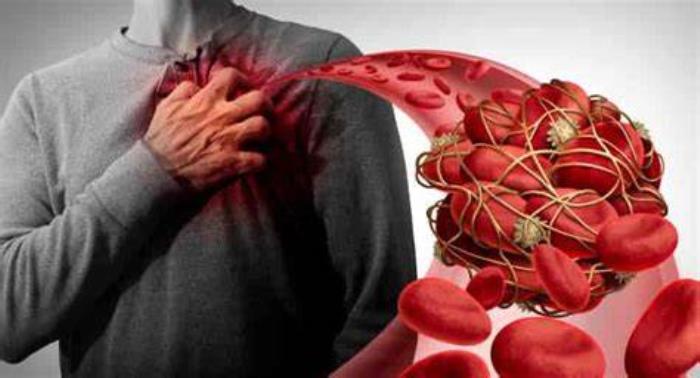After an Atrial Septal Defect (ASD) closure, blood thinners are often prescribed as a preventive measure to reduce the risk of blood clot formation. These medications play a vital role in ensuring that the heart and blood vessels remain free of blockages that could lead to serious complications such as stroke or pulmonary embolism. Understanding their role and proper usage is essential for patients recovering from ASD surgery.
Medical disclaimer: This content is for general awareness and does not replace a doctor’s consultation. For diagnosis or treatment decisions, consult a qualified specialist.
Understanding Atrial Septal Defect and the Need for Blood Thinners
ASD is a congenital heart defect that allows blood to flow abnormally between the heart's chambers, potentially causing damage to the heart and lungs over time. After surgical or catheter-based closure, the heart undergoes a period of healing and adjustment. Blood thinners are prescribed to prevent the formation of blood clots, which can occur as the body heals from the procedure, particularly around the closure site.
How Blood Thinners Help Prevent Blood Clots After Surgery
Blood thinners, or anticoagulants, reduce the blood's ability to clot, which is crucial after ASD closure. Clots can form around the closure device or incision site, and if not controlled, these clots can travel to vital organs like the brain or lungs. By thinning the blood, these medications help reduce the risk of clot-related complications, allowing for a safer recovery process.

Types of Blood Thinners Used After ASD Closure Surgery
The most common blood thinners prescribed after ASD closure are aspirin and warfarin (Coumadin), though newer options like direct oral anticoagulants (DOACs) may also be used. Aspirin helps to prevent clotting by inhibiting platelets, while warfarin and DOACs interfere with the clotting factors in the blood. The choice of blood thinner depends on the patient’s medical history, the type of closure procedure, and the risk of clot formation.
The Duration of Blood Thinner Use Post-ASD Closure
The duration of blood thinner use varies depending on individual factors such as the type of closure, the patient’s overall health, and the presence of any complications. Generally, blood thinners are used for a few months to a year after ASD closure to ensure proper healing and reduce the risk of clot formation. In some cases, long-term anticoagulation may be necessary, particularly for patients with additional heart conditions.
How Blood Thinners Affect Healing and Recovery
While blood thinners are essential for preventing clots, they can also impact the body’s ability to heal from surgery. These medications can increase the risk of bleeding, especially if there is an incision site or if the patient experiences trauma. However, the benefits of preventing clots outweigh the risks, and careful monitoring by healthcare providers ensures that the blood thinner dosage remains safe while promoting effective healing.
Monitoring the Effectiveness of Blood Thinners: What Patients Should Know
To ensure that blood thinners are working effectively, patients will undergo regular blood tests, such as the international normalized ratio (INR) for those taking warfarin. These tests measure the blood's clotting ability and help adjust the medication dosage as needed. It is essential for patients to follow up with their healthcare team regularly, report any unusual symptoms (such as easy bruising or bleeding), and maintain a consistent routine with their medication to prevent complications.
Risks of Blood Thinners: Bleeding and Other Complications
Blood thinners, while essential for preventing clot formation, carry a risk of bleeding complications. This can include easy bruising, nosebleeds, or more severe bleeding episodes. In rare cases, it can lead to internal bleeding, which can be life-threatening.
How Blood Thinners Interact with Other Medications
Blood thinners can interact with a variety of medications, including over-the-counter drugs, antibiotics, and supplements. These interactions can increase the risk of bleeding or reduce the effectiveness of the blood thinner, so it’s essential to inform healthcare providers about all medications being taken.
Dietary Considerations While Taking Blood Thinners
Certain foods, especially those rich in vitamin K (like leafy greens), can interfere with the effectiveness of blood thinners, particularly warfarin. Patients should maintain a consistent diet and consult with a dietitian to avoid complications related to food and medication interactions.

Lifestyle Adjustments and Safety Precautions for Blood Thinner Users
Patients on blood thinners should take precautions to minimize injury risks. This includes wearing protective gear during physical activities, avoiding high-risk sports, and taking steps to prevent falls. Regular dental check-ups are also important to manage gum bleeding issues.
Transitioning Off Blood Thinners: When and How It Happens
The decision to stop taking blood thinners depends on the patient’s recovery and ongoing risk of clot formation. Healthcare providers will monitor progress and may adjust the duration of treatment based on recovery outcomes and risk factors, such as the presence of residual defects or other heart conditions.
The Role of Regular Blood Tests in Monitoring Blood Thinner Use
Regular blood tests, such as INR (International Normalized Ratio) for patients on warfarin, are crucial in monitoring the effectiveness of blood thinners and adjusting dosages. These tests help ensure that the blood is thinned enough to prevent clots without increasing the risk of bleeding.
When to Seek Medical Help: Signs of Complications from Blood Thinners
Patients should seek immediate medical attention if they experience unusual bleeding (e.g., prolonged nosebleeds, blood in stool or urine, heavy menstrual bleeding), dizziness, or signs of stroke (numbness, slurred speech, difficulty walking). These could indicate serious complications from blood thinner use.
The Impact of Blood Thinners on Long-Term Heart Health
Blood thinners help prevent complications from clotting that could lead to stroke or other cardiovascular events. However, prolonged use can pose risks, such as increased bleeding tendencies, which require careful long-term management to balance the benefits and risks for heart health.
Alternatives to Blood Thinners: Exploring Other Options
For some patients, alternatives to traditional blood thinners, such as direct oral anticoagulants (DOACs), may be considered. These medications may have fewer dietary restrictions and require less frequent monitoring, though they still carry bleeding risks.
Patient Education and Support for Managing Blood Thinners Post-Surgery
Educating patients on the proper use of blood thinners, potential side effects, and how to monitor for complications is crucial in post-ASD care. Support groups or counseling can also help patients manage the psychological and lifestyle challenges associated with blood thinner use.
Exploring the Long-Term Health Monitoring for ASD Patients
Read about long-term health monitoring for ASD patients. After ASD closure, ongoing health monitoring is crucial to track heart function and detect any potential complications early. This article outlines the types of monitoring and follow-up care necessary to ensure long-term heart health after surgery.
Advances in ASD Closure Surgery: What Patients Should Know
Stay informed with the latest advances in ASD closure surgery. This article highlights the most recent technological and surgical innovations in ASD treatment, providing patients with a comprehensive understanding of their options and how these advances improve recovery and outcomes.
Conclusion: Blood Thinners as a Key Part of Post-ASD Care
Blood thinners play a critical role in preventing complications following ASD closure surgery. Proper management, monitoring, and lifestyle adjustments are essential to ensure safety and maximize the benefits of anticoagulation therapy.
Best ASD Closure Surgery in India
The Best ASD Closure Surgery in India is a procedure designed to close a hole in the heart’s atrial septum, improving blood flow and overall cardiac health in patients with atrial septal defects.
Best ASD Closure Surgery Hospitals in India
The best asd closure surgery hospitals in india provide advanced facilities and specialized cardiac teams, ensuring comprehensive care from initial assessment to post-surgical recovery.
ASD Closure Surgery Cost in India
The asd closure surgery cost in india is affordable and transparent, offering patients high-quality care and a range of options to suit their needs.
Best ASD Closure Surgeons in India
The Best ASD Closure Surgeons in India are experts in congenital heart procedures, providing personalized care and a high success rate for patients with atrial septal defects.
FAQ
How long do I need to take blood thinners after ASD closure surgery?
The duration of blood thinner use after ASD surgery varies depending on individual health factors, but it typically ranges from a few months to a year, with ongoing monitoring.
Are there any foods I should avoid while on blood thinners?
Foods rich in vitamin K (e.g., kale, spinach, broccoli) should be consumed in consistent amounts, as they can interfere with blood thinners like warfarin.
What are the common side effects of blood thinners after ASD closure?
Common side effects include easy bruising, nosebleeds, and gastrointestinal bleeding. More severe issues can include internal bleeding or allergic reactions.
Can I stop taking blood thinners after my heart recovers?
Stopping blood thinners depends on individual circumstances and should only be done under the guidance of a healthcare provider who will assess your ongoing risk factors.
How do blood thinners prevent complications after ASD surgery?
Blood thinners help prevent the formation of blood clots, which could otherwise lead to stroke or other cardiovascular complications following ASD closure surgery.
Explore the Best Heart Care Resources in India
Find some of the top cardiologist, surgeons and the best heart hospitals in India
Best Heart Hospitals in India
Choosing the right hospital is crucial for successful heart treatments. If you want to explore trusted options, check the list of Best Heart Hospitals in India offering world-class facilities, advanced cardiac care units, and experienced teams for both simple and complex procedures.
Best Cardiologists in India
Finding the right cardiologist can make a huge difference in early diagnosis and long-term heart health. If you are looking for the Best Cardiologists in India, see this curated list of experts who specialize in preventive care, interventional cardiology, and complex heart disease management. Check the full list Best Cardiologists in India.
Best Cardiac Surgeons in India
If you are planning for heart surgery and need top-level expertise, we recommend exploring the Best Cardiac Surgeons in India. These surgeons have a proven record in performing bypass surgeries, valve replacements, and minimally invasive heart operations with excellent outcomes.
Get more indepth information on Cardiology treatments and their costs.
Conclusion
Your cardiology health deserve the best care. Explore the links above to learn more about the top cardiac hospitals and cardiac surgeons in India.
Early screening for atrial septal defects (ASD) is crucial for timely diagnosis and intervention. Detecting ASD early can prevent complications such as heart failure, pulmonary hypertension, and arrhythmias. Early treatment can improve long-term outcomes, reduce symptoms like shortness of breath and fatigue, and enhance overall quality of life. Regular check-ups and imaging tests are essential for monitoring the condition and ensuring appropriate care. The Benefits of Early Screening for Atrial Septal Defects
Autism Spectrum Disorder (ASD) can have significant effects on heart function and overall health. Individuals with ASD may experience cardiovascular issues, such as elevated heart rates, altered heart rate variability, and autonomic nervous system dysfunction. These factors can contribute to higher risks of cardiometabolic diseases, including diabetes, high blood pressure, and dyslipidemia. Understanding these connections is crucial for providing comprehensive care and improving health outcomes for individuals with ASD. The Impact of ASD on Heart Function and Overall, Health
Recent advances in Atrial Septal Defect (ASD) closure surgery have significantly improved patient outcomes. Minimally invasive techniques, such as transcatheter device closure and minimally invasive cardiac surgery (MICS), offer alternatives to traditional open-heart surgery. These methods result in less trauma, shorter hospital stays, and faster recovery times. Patients should be aware of the benefits and potential risks of these advanced procedures, and discuss with their healthcare providers to determine the best treatment option. Advances in ASD Closure Surgery What Patients Should Know